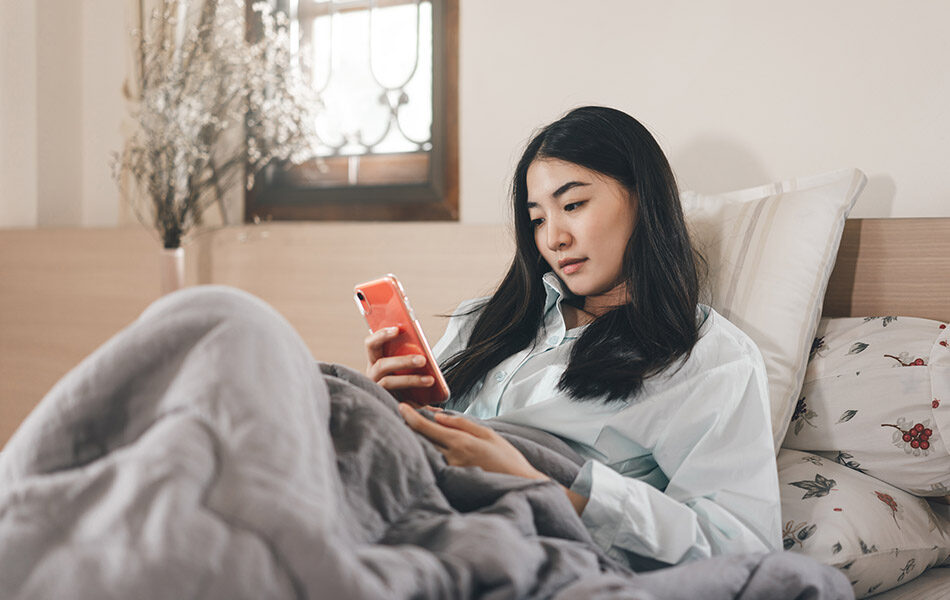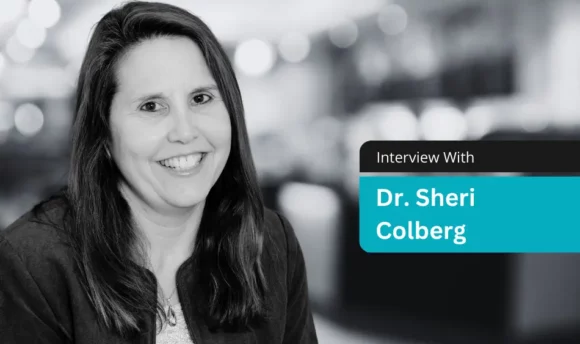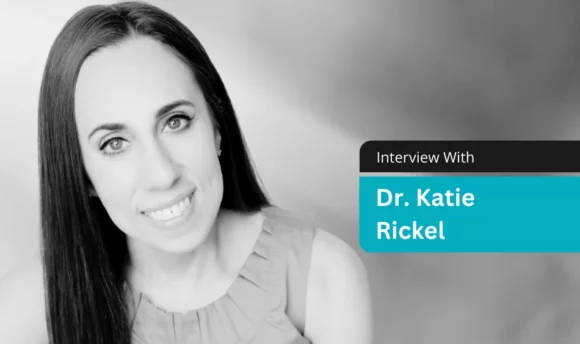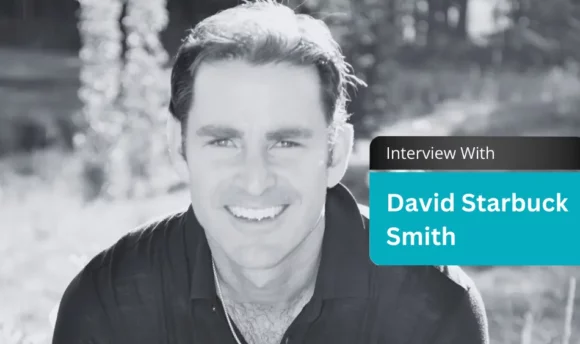5 Viral Mental Health Tips From TikTok: Experts Weigh In
Read to discover the trendiest TikTok life hacks for mental health and their medical validation with the help of experts and scientists.

Are you feeling overwhelmed or stressed out lately? Nowadays, TikTok has advice on everything, and mental health is no exception.
Our team has scoured the depths of TikTok to find the latest, freshest, and most effective tips to help you take care of your mental health. We’re talking about everything from eating an orange in the shower to mental-health-friendly furniture.
With so many videos boasting millions of views, it can be hard to tell which ones actually work. To separate fact from fiction, Health Reporter asked medical experts and looked for relevant scientific research.
#1 Depression Relief Furniture
Hack description
Furniture impacts your mental health. For example, the video’s author chose curved nightstands without drawers because she gets depressed by the trash and mess that accumulates in them.
Scientific evidence
Some studies suggest that architecture creates different moods and feelings depending on how spaces are designed.
Indoor spaces have therapeutic properties. The attention restoration theory suggests that natural environments, with their “soft fascinations,” restore cognitive capacity, reduce mental fatigue, and increase focus and attention.1
Whether angular or curved, furniture contours positively affect emotional and spatial experiences. This leads to better cognitive performance and a feeling of renewal.2
Overall, being in restorative environments improves negative moods.3 Using your senses, you can decide which space is restorative for you.
Medical opinion
“I think this trend is an interesting way for people to evaluate their habits and how they impact their mental and even physical health. In stimulating spaces, you form more productive and beneficial habits,” – says Dr. Mahmud Kara, who has over 30 years of experience conventionally treating patients, spending the early part of his career at the world-renowned Cleveland Clinic.
“I like this tip. Tidy house, tidy mind. If you do nothing else but make your bed each morning, you are already setting yourself up for a clear, productive day. By the way, changing your light bulbs to sleep-aiding ones (red lights) is an excellent bio-hack for better, deeper sleep,” – adds psychotherapist Anna Jackson.
#2 How to Stop Crushing on Someone?
Hack description
Suppose you want to stop crushing on someone who doesn’t like you. In that case, you should follow these 6 tips: grieve it, consider if you have a pattern of being attracted to unavailable people, recognize the qualities you appreciate in others, remember that everyone has flaws, focus on available people, and don’t romanticize your feelings.
Scientific evidence
Suggested tips include exposure-response prevention, cognitive restructuring, and behavioral activation techniques.
Research has proven that these techniques are effective in treating limerence – an overwhelming and obsessive infatuation with someone, or, in modern words, “crushing.”4 Studies agree that to deal with it, you need to develop adaptive habits focused on unhealthy patterns and self-awareness.5
Medical opinion
“All 6 therapist suggestions are effective ways to move forward. In addition, there is greater awareness of toxic relationships’ detrimental side effects. Understanding the harm they cause makes it easier to move on and search for a healthier relationship,” – says Lisa Lawless, psychotherapist and founder of Holistic Wisdom, Inc.
“Surrender that you both have different feelings toward the other. If you are struggling to accept this, ask yourself why. Does holding on keep you feeling closer to this other person? Do you feel that accepting reality means that it is actually true? Once you accept and surrender, you can move on, and the right person will have a chance to enter your life. Remember that when we fantasize about people, we almost always overlook or don’t see their flaws,” – says psychotherapist Anna Jackson.
#3 The Shower and Orange Hack
Hack description
To decrease anxiety and depression, eat an orange in the shower.
Scientific evidence
While combining the two does not have enough clinical research to support it as a “medically legit” practice, research proves the benefits of vitamin C and showers.
Oranges are a great source of vitamin C, which recent studies have linked to improved depression and overall mood due to their antioxidant properties.6 The inhalation of orange’s essential oil aroma also helps treat anxiety.7
Furthermore, hydrotherapy, particularly cold showers, has been found to help with symptoms of depression and anxiety.8
Combining the calming and stress-relieving effects of the shower with eating a natural vitamin C source could help those struggling with anxiety or depression.
Medical opinion
“One important component in managing anxiety and depression is developing a routine that works for you and that you can stick with. If you enjoy oranges and showering and can build a healthy habit with this trend, try it.
There is a caveat to this trend: select organic or locally-sourced food options whenever possible, especially if you are trying to reap the benefits of a specific vitamin and nutrient.
Most foods on modern supermarket shelves are nutrient deficient and laden with chemicals. For example, an orange 50 years ago had 200–250mg of vitamin C because cultivation methods did not heavily use pesticides or herbicides.
In today’s world, an organically grown orange can reach 150mg of vitamin C. In comparison, conventional oranges that you would typically choose off the shelf only contain 50–60mg,” – says Mahmud Kara, an M.D. with over 30 years of experience.
“The use of orange peel in traditional Asian medicine for treating depression has been documented for centuries. I have always encouraged my clients to explore complementary therapies alongside traditional treatments. Aromatherapy is one such option, and using orange essential oil has shown promising results,” – adds Lisa Lawless, psychotherapist and founder of Holistic Wisdom, Inc.
#4 “Best Mental Health Advice Ever”
Hack description
If you feel like you hate everyone, eat something. If you feel like everyone hates you, go to sleep. If you feel like you hate yourself, take a shower. And if you feel like everyone hates everyone, go outside.
Scientific evidence
This approach aims to shift our attention toward taking action, a psychological practice that is widely approved.9 Several of the tip statements have been backed by research.
Showering effectively reduces stress, tension, anxiety, anger, hostility, and depression.10
Lack of sleep increases anxiety levels by up to 30%, which leads to feelings of hatred.11 So, getting sufficient sleep is essential for maintaining good mental health.
Anxiety and depression symptoms can be eased by walking regularly.12 Furthermore, people who interact with each other have fewer conflicts and a lower level of expressed hatred.13 Engaging with other people on the street, even by only seeing them, decreases negative feelings.
When using food to alleviate anxiety and hate, consider what you eat. Complex carbohydrates, which are metabolized slowly, maintain a more stable blood sugar level, resulting in a calmer feeling.14 A diet that includes whole grains, vegetables, and fruits is a healthier alternative to simple carbohydrates in processed foods.
Medical opinion
“There are many quick ways that people suggest that you deal with negative emotions. Certainly, eating, sleeping, and taking care of your hygiene are all important ways that we can provide ourselves with self-care. However, in the long term, it is important to address the root cause of our negative emotions and develop healthy coping skills around those,” – says Lisa Lawless, psychotherapist and founder of Holistic Wisdom, Inc.
#5 Dopamine Detox for Mental Clarity
Hack description
If you need to stop scrolling on social media, binge-watching series, and eating junk food, as well as improve your creativity and feel less tired, try a dopamine detox.
Scientific evidence
The creator of the concept of dopamine detox is Dr. Cameron Sepah, a psychiatrist from California.15 Dr. Sepah claims that dopamine is a mechanism that helps to explain the reinforcement of addictions. The catchy title should not be taken literally.
To clarify, the aim of dopamine fasting is not to decrease the production of dopamine but rather to reduce impulsive behavior.16 We regain control over our lives by experiencing boredom and engaging in simpler and more natural activities. It helps effectively address compulsive behaviors that negatively impact our overall well-being.
Research suggests that avoiding certain behaviors, such as excessive use of smartphones and social media, helps people achieve greater mindfulness. It comes with its own set of benefits, including stress relief, lower blood pressure, and improved sleep.17
Medical opinion
“This tip is a helpful tool for reducing stress and improving mental health. Yet, it’s not a substitute for evidence-based therapy such as cognitive behavioral therapy or medication management.
Social media can help people with ADHD and ASD, as it can provide a sense of normalcy and a supportive social community. A dopamine detox can be challenging, especially for individuals with anxiety or depression, and may even cause it to worsen,” – says Lisa Lawless, psychotherapist and founder of Holistic Wisdom, Inc.
The Bottom Line
TikTok trends can help you examine your habits and how they affect your mental health. Yet, don’t forget the basics to stay safe.
Experts recommend addressing the root cause of negative emotions and developing healthy coping skills around them. Remember that TikTok hacks are not a substitute for a psychologist or medication.
If you want to try a new tip, experts advise listening to your mind. Did something change after testing a particular piece of advice? What are the changes? Would you repeat this? Focus not only on short-term but also long-term effects and feelings.
The fact that you’re reading this article is already a green flag, indicating that you care about your mental health and are seeking ways to maintain it. So be courageous and continue exploring yourself, as this journey is one of the most exciting and essential ones.
Sources
- Kaplan R., Kaplan S. The Experience of Nature: A Psychological Perspective. Cambridge University Press; New York, NY, USA: 1989. p. xii-340.
https://books.google.lt/books?id=7l80AAAAIAAJ&lpg=PR7&ots=TqO3QKpa1f&lr&pg=PP1#v=onepage&q&f=false - Banaei M., Hatami J., Yazdanfar A., Gramann K. Walking through architectural spaces: The impact of interior forms on human brain dynamics:
https://www.ncbi.nlm.nih.gov/pmc/articles/PMC5627023/ - The Living Space: Psychological Well-Being and Mental Health in Response to Interiors Presented in Virtual Reality:
https://www.ncbi.nlm.nih.gov/pmc/articles/PMC8656816/ - Wyant BE. Treatment of Limerence Using a Cognitive Behavioral Approach: A Case Study. J Patient Exp:
https://www.ncbi.nlm.nih.gov/pmc/articles/PMC8641115/ - Bringle RG, Winnick T, Rydell RJ. The prevalence and nature of unrequited love:
https://journals.sagepub.com/doi/pdf/10.1177/2158244013492160 - Effects of Oral Vitamin C Supplementation on Anxiety in Students: A Double-Blind, Randomized, Placebo-Controlled Trial
https://pubmed.ncbi.nlm.nih.gov/26353411/ - Effect of sweet orange aroma on experimental anxiety in humans:
https://pubmed.ncbi.nlm.nih.gov/22849536/ - Adapted cold shower as a potential treatment for depression:
https://www.sciencedirect.com/science/article/abs/pii/S030698770700566X?via%3Dihub - Wadlinger HA, Isaacowitz DM. Fixing our focus: training attention to regulate emotion:
https://www.ncbi.nlm.nih.gov/pmc/articles/PMC2970710/ - Goto Y, Hayasaka S, Kurihara S, Nakamura Y. Physical and Mental Effects of Bathing: A Randomized Intervention Study:
https://pubmed.ncbi.nlm.nih.gov/29977318/ - Ben Simon, E., Rossi, A., Harvey, A.G. et al. Overanxious and underslept. Nat Hum Behav 4, 100–110 (2020):
https://www.nature.com/articles/s41562-019-0754-8 - Exploring the Relationship between Walking and Emotional Health in China:
https://www.ncbi.nlm.nih.gov/pmc/articles/PMC7734587/ - Hoffman AJ. Community service activities reducing hate crimes and extremism: A “green intervention” approach:
https://pubmed.ncbi.nlm.nih.gov/31190637/ - Harvard Medical School, Nutritional strategies to ease anxiety:
https://www.health.harvard.edu/blog/nutritional-strategies-to-ease-anxiety-201604139441 - How to Feel Nothing Now, in Order to Feel More Later:
https://www.nytimes.com/2019/11/07/style/dopamine-fasting.html - The Definitive Guide to Dopamine Fasting 2.0 – The Hot Silicon Valley Trend:
https://www.linkedin.com/pulse/dopamine-fasting-new-silicon-valley-trend-dr-cameron-sepah/ - Wielgosz J, Goldberg SB, Kral TRA, Dunne JD, Davidson RJ. Mindfulness Meditation and Psychopathology:
https://www.ncbi.nlm.nih.gov/pmc/articles/PMC6597263/

















































 Select your language:
Select your language: 








